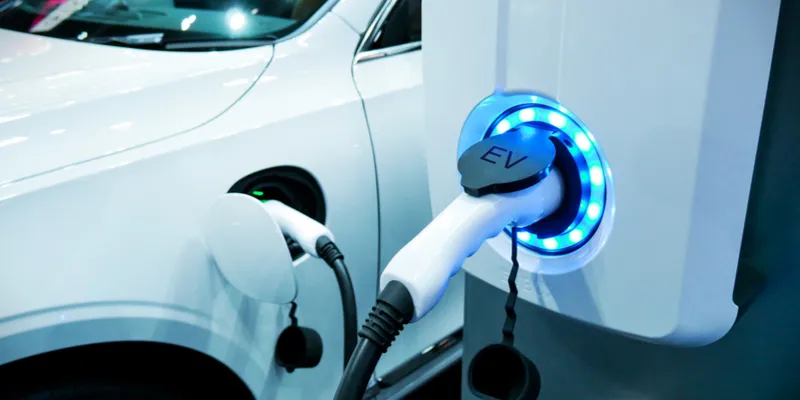Budget 2020: The future is electric and the government must invest in it, say EV startup founders
As the startup ecosystem readies for Budget 2020, EV companies are hoping that the government will remove policy roadblocks and up India’s electric mobility game.
More than one million electric vehicles (EVs) hit the road in India over the last two years. Over 350,000 units were sold in FY18 while the number rose to over 750,000 units in FY19. Clearly, the government and startups are going all out to up the electric mobility game to ensure a clean, green, and responsible India.
Schemes such as Faster Adoption and Manufacture of Electric Vehicles (FAME) and a government nod for setting up 2,636 charging stations in 62 cities across 24 states and union territories may have set up India’s EV industry for growth. However, startups believe that this is just the beginning and a lot more needs to be done.

Founders of EV startups are hoping that Budget 2020 makes electric vehicles mainstream by announcing several sops.
With all eyes focused on Budget 2020, founders working in the EV segment are hopeful that the government will give the green signal to several decisions to remove policy roadblocks.
What EV startups want
Founders believe there are “lots of discrepancies in policy”, especially when it comes to sourcing of materials from abroad. The first involves changing the 10 percent duty imposed on knocked-down kits (disassembled and pre-assembled) to assemble an EV.
“There is a discrepancy because there is nothing like a disassembled battery pack. Batteries come to us and we assemble them. This is the core of the industry, and the government must reduce duties,” says Dhivik Reddy, Founder of GoGreenBOV, whose bike is readying for a launch with local ride-hailing companies.
While the GST on final product, the vehicle, is only 5 percent, the parts are charged at 10-15 percent.
EV founders expect clarification from the finance ministry or an amendment on the confusion on imports with the word " disassembled" and "preassembled" for a knock-down kit and "complete built unit" in the import duty structure. The duty structure before the amendment was at 10 percent, but is now at 15 percent.
Similarly, the founders say that pedal-assisted trikes need to be included as a category and exempted from regulation.
“This is already in place in the US and Europe where any vehicles below 750 watts of motor power are exempted. Subsidies for the sub-25 km per hour category are required as they are important for last-mile connectivity,” says Visakh Sasikumar, Founder of PiBeam Labs, which is developing EV platforms.
Financing the need of the hour
As of now, the EV space has only one company that provides loans to EV consumers: Bengaluru-based .
This lack of retail finance is becoming an impediment in the growth of the industry.
“Financing for EVs should be made a priority. We tried to speak to a couple of retail finance companies, given that there was no focus from the RBI and the government. It hasn’t been easy to get vehicle financing,’’ says Saurav Kumar, Founder of Euler Motors, which will launch its first commercial vehicle for India soon.
The government should also cut import duties of components and push “Make in India” for these. Saurav says the supplier ecosystem is not yet robust, and may die out without support from the government and banks.
Startups like Magenta, Altigreen, , and are part of a growing ecosystem of startups helping create a product-oriented mindset. They also aim to create EV charging infrastructure and applications.
A unified EV policy
’s Ola Mobility Institute, along with the World Economic Forum, in October 2019, released a report with an analysis of the EV policies across different states in India. The report called for a common framework to bring in consistency and accelerate EV adoption in India.
In the report, Christopher Wolff, Head of Mobility Industries and Systems Initiatives, World Economic Forum, said: “Using a value-chain framework to review all 10 states’ draft or final EV policies, this report allows for policymakers, businesses, and practitioners alike to highlight focal point policies and identify new opportunities for public-private collaboration. The analysis should continue to be developed further to provide recommendations to states on the sustainability and longevity of different EV policies.”
Sunil Musti, Co-founder of Enercent, whose software manages energy for EVs in ecommerce companies, feels that reducing GST from 5 percent to zero will increase adoption over the next decade.
“There should be clarity on waivers on infrastructure costs. At present, States don’t have a unified EV policy. DISCOMs should waive off deposits when infrastructure startups apply for electricity meters. EV charging companies should be able to contract power purchase agreements without any minimum payment on the power they need to purchase,” he adds.
Invest in a green future
The fact also remains that EV companies – manufacturers and fleets - can achieve scale only with the right infrastructure.
For players in the public transport space, the infrastructure needs to be easy to set up, low maintenance, cost-efficient, and quick to use. It needs to be both widespread and convenient.
The domestic EV market is projected to grow 36 percent annually between 2019 and 2026 as the market has gained traction following the implementation of the second phase of the EV incentives scheme in April 2019.
EV startups believe that the future is electric, and the government needs to invest in it.
With large companies like Hyundai, MG Hector, Tata Motors, and Mahindra & Mahindra readying to showcase powerful EV platforms for the future at the Auto Show in Delhi this February, the government will surely announce more than a few sops for EV startups.
And just like startups have become a budget mainstay since 2014, we can expect EVs to be part of every budget going forward as India works on “greening” its transport system.
(Edited by Teja Lele Desai)




1552879322388.jpg?fm=png&auto=format&h=100&w=100&crop=entropy&fit=crop)





